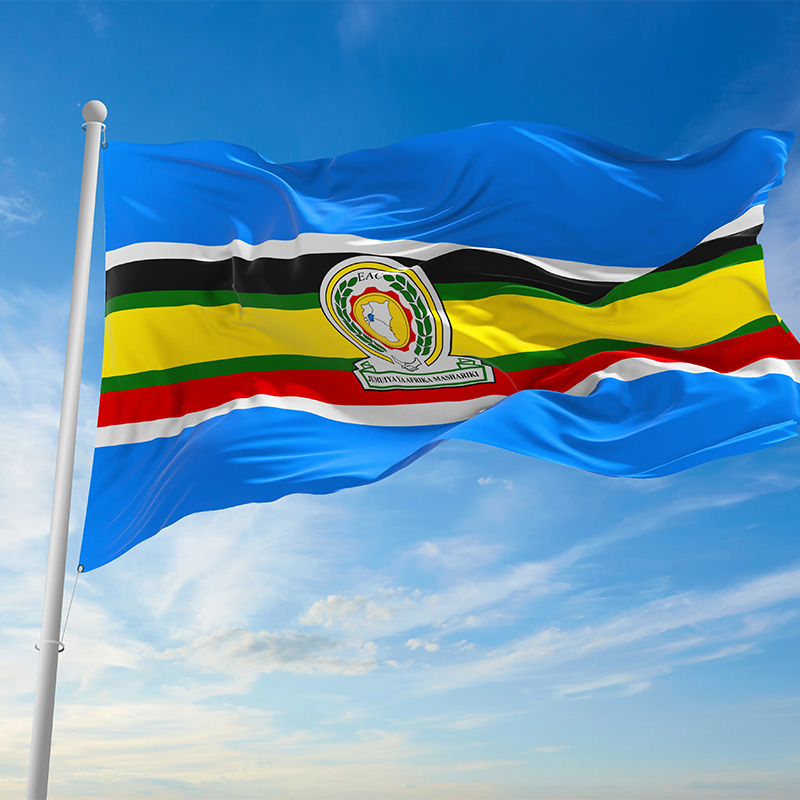Challenges threatening EAC unity: A closer look at disputes, economic disparities, and potential rifts

The East African Community (EAC), whose slogan is One People, One Destiny, was established to foster cooperation among the partner states, which comprise Burundi, the Democratic Republic of Congo, Kenya, Rwanda, the Federal Republic of Somalia, South Sudan, Tanzania, and Uganda. The cooperation was to be strengthened by the four pillars of EAC integration, namely, a Customs Union, a Common Market, a Monetary Union, and a Political Federation, which the latter has been difficult to implement.
The four pillars are meant to strengthen and regulate the industrial, commercial, infrastructural, cultural, social, political, and other relations of the partner states. The cooperation between the partner states seems to be dwindling, with the EAC recently issuing a statement on Inter-Partner State Cooperation. The statement is a culmination of a series of events, particularly in the past year, where partner states were, and some continue to be at loggerheads with each other. The statement was vague and not directed to any partner state as it only sought to encourage them to resolve their disputes through the existing EAC Dispute Resolution Mechanisms.
The first EAC collapsed in 1977 due to differences in ideologies, political rivalries, and nationalism, which are factors that can easily disregard the spirit of integration and cooperation. Particularly, nationalism carries with it the perspective that development should not be concentrated in one partner state. Dissimilarities in levels of development can easily lead to distortion of cooperation in trade, which affects the movement of goods, services and people. One of the reasons that the first EAC collapsed was the concentration and expansion of trade in one Partner State, Kenya. In 2000, the EAC was reestablished; however, the problems that were witnessed in the first EAC seem to be re-occurring.
Wrangles among partner states have resurfaced, impeding on the pillars of integration, particularly on common market and customs union. These two pillars are key for the economic development of the partner states; however, nationalism has become a major impediment. Last year Uganda sued Kenya at the East African Court of Justice for the failure to grant it the approval to import oil through its pipeline. Mostly recently, Tanzania raised an issue with Kenya for refusal to approve its cargo flights flying to Nairobi. In retaliation, the Tanzania Civil Aviation Authority issued a statement banning flights from Nairobi to Dar-es-Salaam, which would have a ripple effect on the pillar of the common market, distorting tourism and businesses. The two countries have agreed to resolve the matter amicably, appreciating the urgency and the impact.
The Republic of Somalia is the latest state to join the EAC. Somalia sued Kenya in 2014 in the International Court of Justice on the issue of maritime border. The court issued a verdict in favour of Somalia, which Kenya rejected. In the past year, mediation talks had been proposed with Somalia rejecting any such efforts. Somalia’s coastline boasts in blue economy, which is a great addition to the EAC, which has a population of over 300 million people. The lingering unresolved border conflict between Kenya and Somalia may one day explode, and this will create another rift in the bloc.
Security challenges experienced in Somalia will pose a security threat to the EAC bloc. Free movement of people between the partner states poses the threat of the insurgents moving into other partner states. The EAC will be faced with the challenge of its readiness to support Somalia in the war against terrorism. This may pose a threat to the political stability of the bloc and the likely disintegration of the EAC.
Kenya enjoys the benefit of being more economically developed in comparison to its counterparts. It is in reference to this that Kenya has always enjoyed an upper hand in relation to trade with the other EAC states and other international countries. The economic benefits enjoyed by Kenya to the detriment of the other Partner States have led to a buildup of a cold war against Kenya from the other Partner States. EAC seems not to have efficient dispute resolution mechanisms which the Partner States can rely upon which forces them to rely on their own mechanisms.
The disputes arising in the EAC among its Partner States and the ineffectiveness of the dispute resolution mechanisms will likely lead to the collapse of the EAC and Partner States resorting to the popular demand of growing protectionism and economic nationalism. If the Partner States do not reflect on the spirit of cooperation as expounded in the EAC Treaty, an EAC moribund is inevitable.

